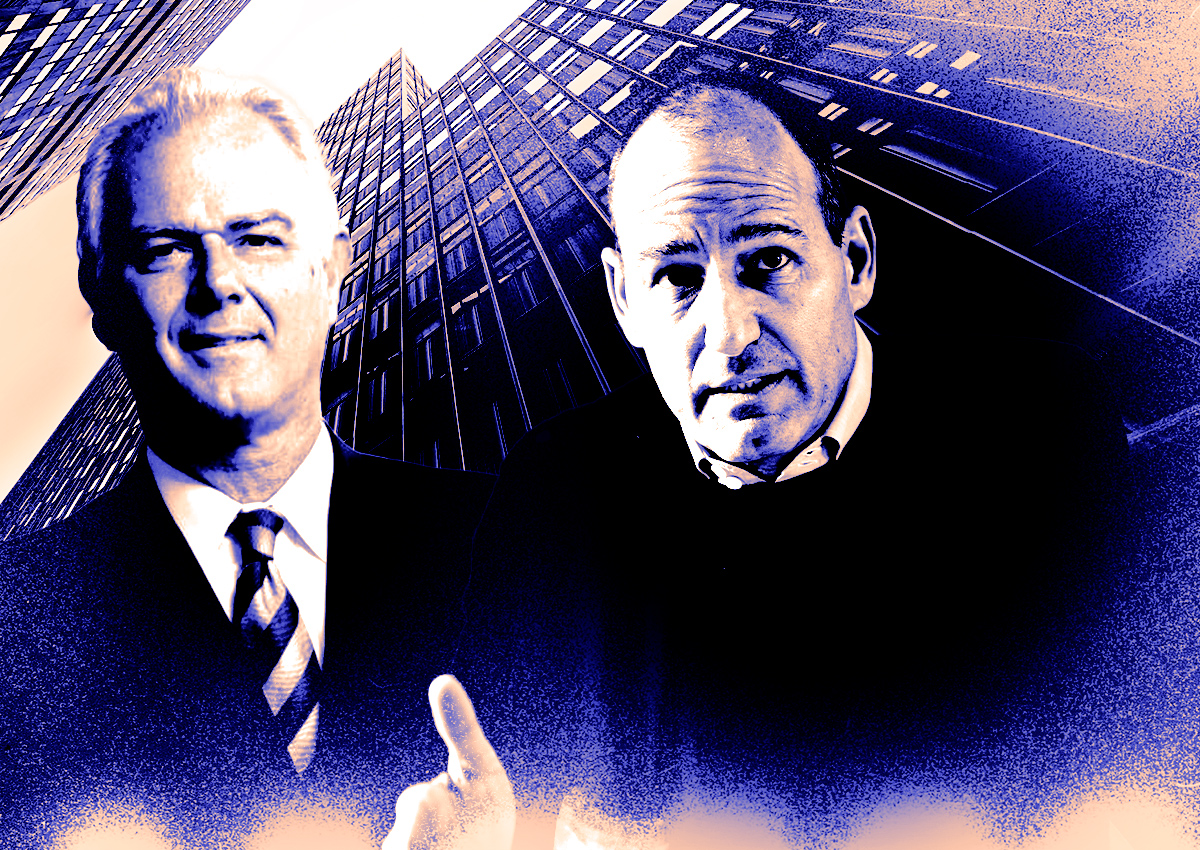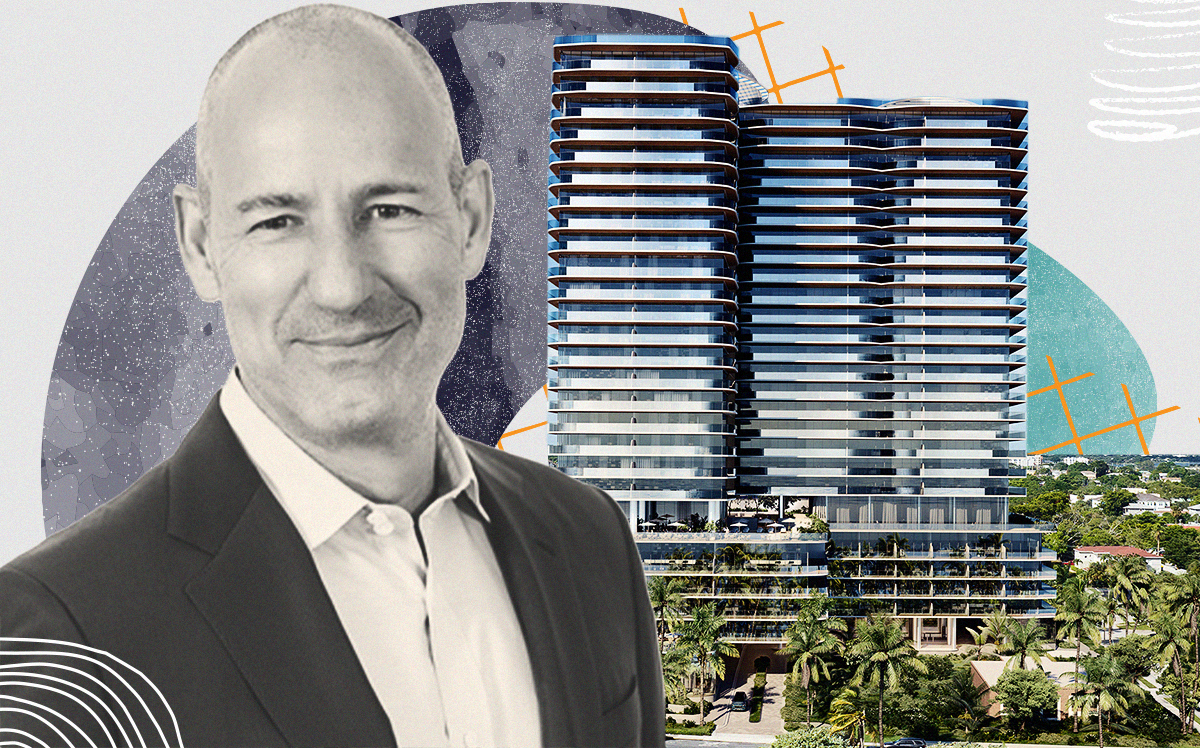Savanna, one of the biggest office investors in New York City, prospered in the 2010s with funds that targeted distressed assets after the Financial Crisis.
But its recent activity — including defaulting on debt, repeatedly extending loans and reducing its ownership stake within individual properties — indicate distress is increasing in Savanna’s own portfolio.
Savanna raised eyebrows in June by transferring its 40 percent stake in 110 William Street to its partner at the 31-story office building. The firm has blown past maturity dates on a number of securitized loans, and vacancies are rising on two of its big Midtown office buildings.
Chris Schlank and Nick Bienstock, Savanna’s co-chairs, are caught in a trap that’s ensnared practically everyone in the office sector. Work-from-home policies have punctured occupancy rates and rapidly rising interest rates have made it difficult to refinance when loans expire.
In the aftermath of the 2008 meltdown, Savanna saw opportunity. It snapped up a bunch of buildings in a sagging market and emerged as a star of the following decade — a scenario it aims to repeat.
“We believe that a deep distress investing opportunity is emerging across many real estate assets, and in New York City office buildings in particular right now,” Bienstock told the Commercial Observer in May.
But with the distress also emerging in many of its own buildings, shoring them up would seem a more pressing matter for the firm.
Portfolio under pressure
Savanna is no stranger to tight situations. When it acquired a controlling interest in Long Island City’s One Court Square in 2014, it thought it had landed one of the city’s marquee office buildings.
A series of unfortunate events poured cold water on that notion. First, anchor tenant Citigroup let its lease expire. Savanna expected to fill the vacancy with Amazon when the e-commerce giant chose Long Island City for its second headquarters, but the deal fell through in early 2019 when Jeff Bezos pulled out, citing local opposition.
Savanna made moves to get the property back on stable footing. In January 2020, it recapitalized One Court Square just before its loan was set to mature, and in October 2022 it leased 350,000 square feet to the School Construction Authority.
While the current financial state of One Court Square is presently unclear, Savanna faces a plethora of similar situations as rising vacancy and interest rates coupled with declining rents have forced the firm to push maturity dates back as far as it can.
Occupancy has dropped significantly at two of Savanna’s prime Midtown office buildings, 521 Fifth Avenue and 5 Bryant Park, with rates falling to 78 percent and 81 percent, respectively.
At 521 Fifth, the company has exercised its last maturity extension, pushing the loan’s expiration date back to June 2024. “The property is underperforming,” said Maverick Force, a senior director with KBRA Analytics. “A number of tenants signed [post-pandemic] but received pretty lengthy concessions, anywhere from eight to 16 months of free rent.”
In Queens, Savanna bought the Falchi Building at 31-00 47th Avenue for $257.5 million in 2016, helped by an $83 million loan. The debt’s original maturity was March 2023, but the company exercised all its extension options and still needed to push the date back. Negotiations yielded another short-term extension to September.
One of Savanna’s biggest duds is 60 10th Avenue, which the firm bought as a new-build in 2015. The 19,500-square-foot property, where the Meatpacking District meets West Chelsea, briefly hosted a Disney popup store but has never had a real tenant. Cushman & Wakefield lists the rent as “negotiable.”
The most recent sign of trouble was Savanna’s exit from 110 William Street in the Financial District, the neighborhood that’s struggled the most with office occupancy. While Savanna is staying on as the operator and construction manager for new tenants, the company transferred its 40 percent stake to Pacific Oak. It’s unclear what it got in return.
Another Savanna property, 1825 Park Avenue, illustrates the unappetizing choices office holders have in the current environment. The company tried to sell the building last year but couldn’t. Now it is looking to refinance it, but capital markets have largely dried up.
“There’s probably a fair amount of buyer’s remorse at this point, across all the property types,” Manus Clancy of Trepp said of the office market as a whole. “You expected values to stay high. That hasn’t been the case. We’ve seen values really fall.”
Uncertain future
Savanna may not have any magic bullets for its office portfolio, but it has moved to invest in other property classes.
In 2021 and 2022, the firm assembled a development site in West Palm Beach and plans a two-building, 26-story condominium it calls Olara. The blueprint calls for 315 condo units and 170 rentals with a private marina and other amenities.
It began sales at the luxury development in January and landed a $50 million construction loan in March from an entity tied to Madison Realty Capital. The project represents location and asset diversification, but also risk in that it is not Savanna’s primary area of expertise — New York offices.
Schlank and Bienstock have said publicly that this is only the beginning of Savanna’s development ambitions in West Palm Beach.
Track record
Savanna made a killing in the distressed market begotten by the Financial Crisis. The firm’s second fund, launched in 2010, finished with a net internal rate of return 24.7 percent, according to data from Prequin.
But the firm’s third fund, launched in 2013 and focused more on a value-add than a distressed-asset strategy, had a net IRR of negative 24.7 percent as of early this year.
Savanna’s story is typical of the post-pandemic office market: Firms that took out short-term, floating-rate loans on office properties in the pre-Covid years have all found themselves in the same boat.
As those loans come due, office holders are kicking the can down the road with extensions, but that can only go on for so long. Investors have little appetite for buying office buildings, at least at prices that make sense for owners, so listing them for sale has been fruitless. And lenders are reluctant to restructure debt; one source told The Real Deal that the Falchi Building is “probably not financeable.”
This leaves few options for office owners like Savanna other than trying to buy time in the hope that market conditions improve.
Lenders are also getting squeezed. Many have no interest in foreclosing on office buildings because they lack the bandwidth or expertise to manage them. This leaves them humoring office holders with short-term loan extensions, also with the hope that delaying will spare them from having to write down loans.
“No vaccination exists for the value reset and no one is immune,” said Meridian Capital Group’s David Schechtman. “But you know, [Savanna executives are] not guys who I would bet against.”
Rich Bockmann contributed reporting.
Read more



